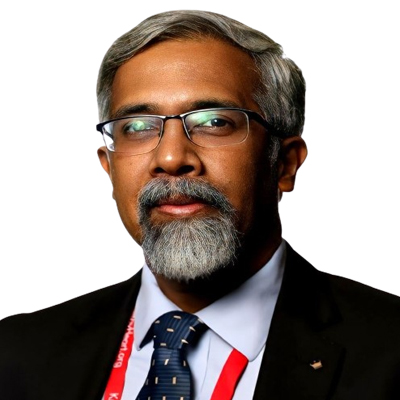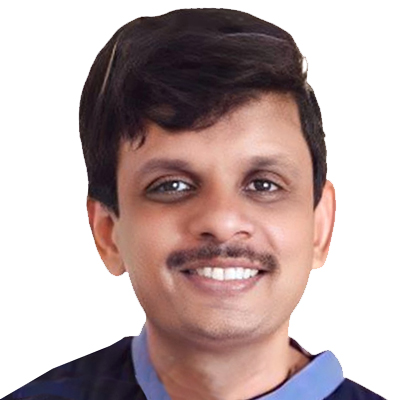

Dear Friends,
The epidemic of diabetes is indeed a scourge that induces a significant degree of infliction for more than 100 million patients in India. Moreover, it is a global malady that affects more than 830 million patients worldwide. Diabetes in the lean is more than just a personification of illness, it occurs predominantly as Type 1 diabetes mellitus, but research across the world and home-grown exploration and research in Vellore has shown that there are other Important causes which include primary pancreatic disorders, low birth weight, genetic disorders of insulin production and resistance and malnutrition which may be antenatal and compounded by postnatal factors.
The dawn of January 2025 will witness an epochal conclave that involves the footfall of close to 30 international experts from across the globe encompassing 5 continents and 15 countries, and 70 national experts, covering the length and breath of diabetes from a pragmatic, clinical, academic and research-oriented perspective ranging from field to bench to bedside.
Forays into the nutritional aspects as an etiological factor involved in the evolution of diabetes, particularly the great paradox of undernutrition as a causative factor will be discussed. Diabetes in pregnancy is an epidemic within an epidemic and is responsible for another torrential shower of young women who are affected with this problem, and there are orations that will cover this disorders in detail.
State of the art research on genetics as a factor which is involved in the development of diabetes is talked about, and these conditions should be considered as not too uncommon, since their therapy may differ from other causes of young onset diabetes mellitus.
Lucid workshops and sessions will cover the diabetes foot, Genetics, Pancreatic and islet cell transplantation, Body composition analysis and insulin pump usage. In an effort to stimulate growing researchers and young minds, there are oral and poster presentations and quiz competitions for undergraduates and interns, broad specialty postgraduates and Higher specialty postgraduates.
The meeting in itself will be of value for a broader audience, ranging from Physicians, obstetricians, pediatricians, nutritionists, community health physicians, general practitioners, laboratory scientists, basic science researchers and endocrinologists.
Speakers will include the presidents of the international diabetes federation, the American diabetes association and chairs of the international diabetes federation for Africa, South Asia and other regions.
This meeting has been awarded 4 credit hours by the Tamil Nadu Medical Council and credit points from The Tamil Nadu Dr. M.G.R. Medical University.
We invite you all to be part of this academic event in the year to come.
Nihal Thomas

Dear Friends,
Diabetes in young, ranging from children to adolescents, young adults is an emerging problem that transcends all countries across every continent across the globe; the problem is even more profound in lower middle income countries and emerging economies across the world. Besides patients who have Type 1 diabetes who are living longer, considering an improved availability of supporting resources, there is an increase in obesity thereby leading to an upsurge of Type 2 diabetes in the young. Disorders indigenous to the tropics and subtropics such as fibro-calculous pancreatic diabetes are still significant, under recognised and under diagnosed. Genetic disorders are commoner than expected. Malnutrition and low birth weight add to the double burden of disease and add a thrifty phenotype responsible for increasing forms of diabetes which need more introspective evaluation and research. We would like to commend the team at Christian Medical College Vellore and their partners, the Albert Einstein Medical College, New York and Tata Institute of Fundamental Research for congregating such a vast repository of eminent researchers and clinicians. The meeting organized in Vellore will prove to be a hallmark and stepping stone towards better understanding of diabetes as a disorder that transcends all societies. I wish the Organizers a meeting that fulfils these objectives to the berth maximum.
Peter Schwarz

Dear Colleagues,
We are excited to host the Vellore Endocrinology International Congress 2025 at Christian Medical College, Vellore, India. This year’s conference will focus on Navigating the Heterogeneity of Diabetes on a Global Basis.
The International Diabetes Federation reported as of 2021, approximately 540 million people worldwide (~10.5% of the adult population ages 20 to 79) had diabetes, almost half of them being undiagnosed. This number is projected to increase to 783 million by 2045. It is increasingly recognized that the clinical presentation of diabetes in individuals from different population groups worldwide is heterogeneous. The heterogeneous clinical presentations and complications of these phenotypes require customized management approaches. As an important example, approximately 25 million people with diabetes globally have a low body mass index, which represents a unique diabetes phenotype with its own management challenges. This conference aims to address discussions on the heterogeneity of diabetes as well as recent advances among individuals with type 1 and type 2 diabetes.
We invite you to participate in scientific sessions led by globally recognized clinicians, scientists, and researchers with decades of experience studying and managing diabetes. The speakers will share their clinical experience and scientific expertise through presentations and discussions on atypical diabetes, pregnancy and hyperglycemia, diabetes foot, type 1 diabetes, clinical genetics, novel advances in management, and more. Participants can also connect with faculty to discuss their research and up-to-date advances.
We are looking forward to connecting with you in this exciting academic endeavor!
Meredith Hawkins

Dear Friends,
While heterogeneity of diabetes has remained a significant challenge, evolving lifestyle and dietary habits has added to the complexity. Besides the focus on therapeutic interventions, biological underpinnings that drive the onset and progression of diabetes (and the heterogeneity), remain largely unknown. It is also important to emphasize on the need to consider factors such as developmental/adult malnutrition, metabolic homeostasis, circadian rhythm, inappropriate physical activity and energy expenditure that differentially contribute to the etiology of the disease.
This conference aims to not only identify outstanding issues but also bridge fundamental biology and clinical research to possibly generate novel hypothesis and/or interventional strategies in the future.
Ullas Kolthur-Seetharam





